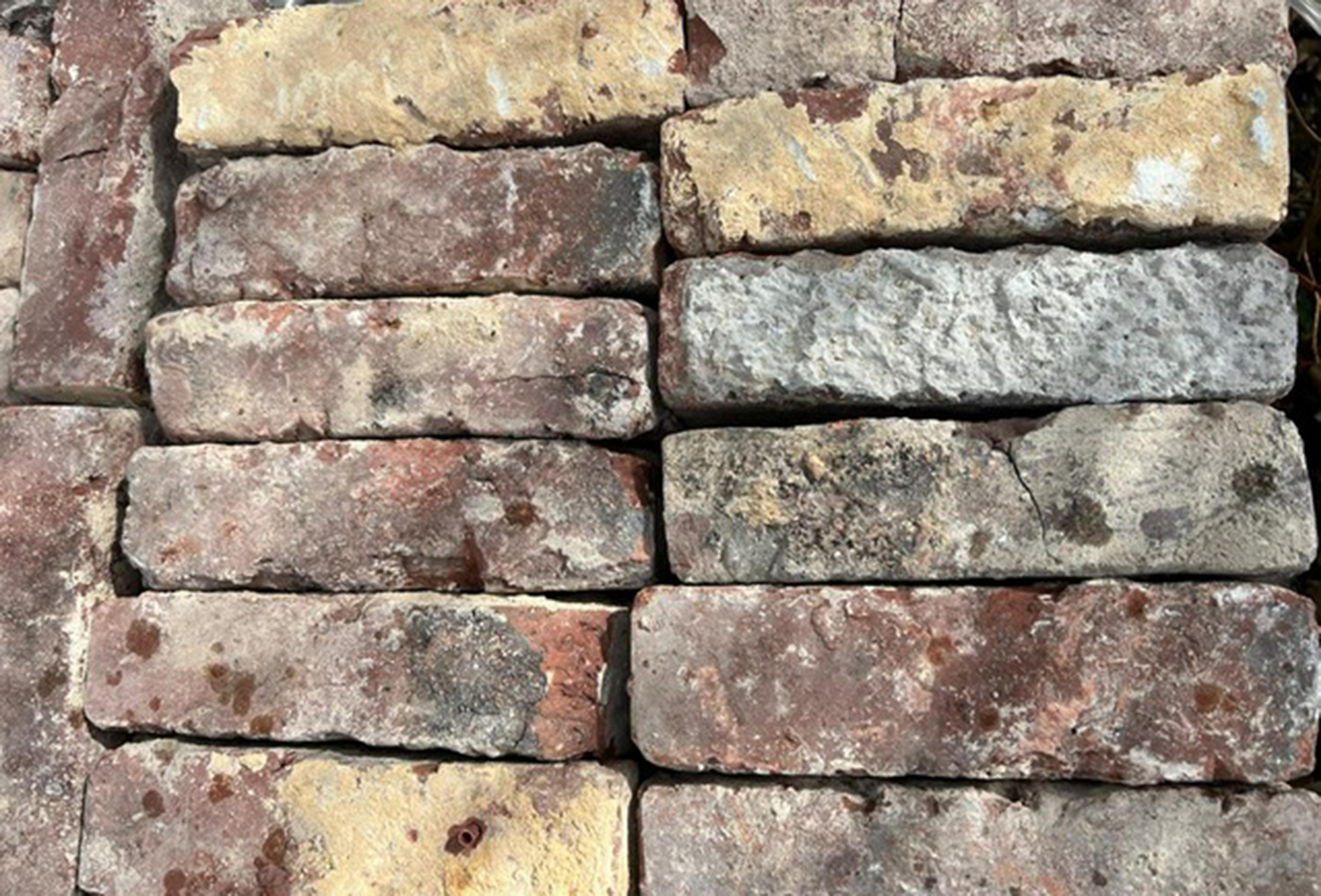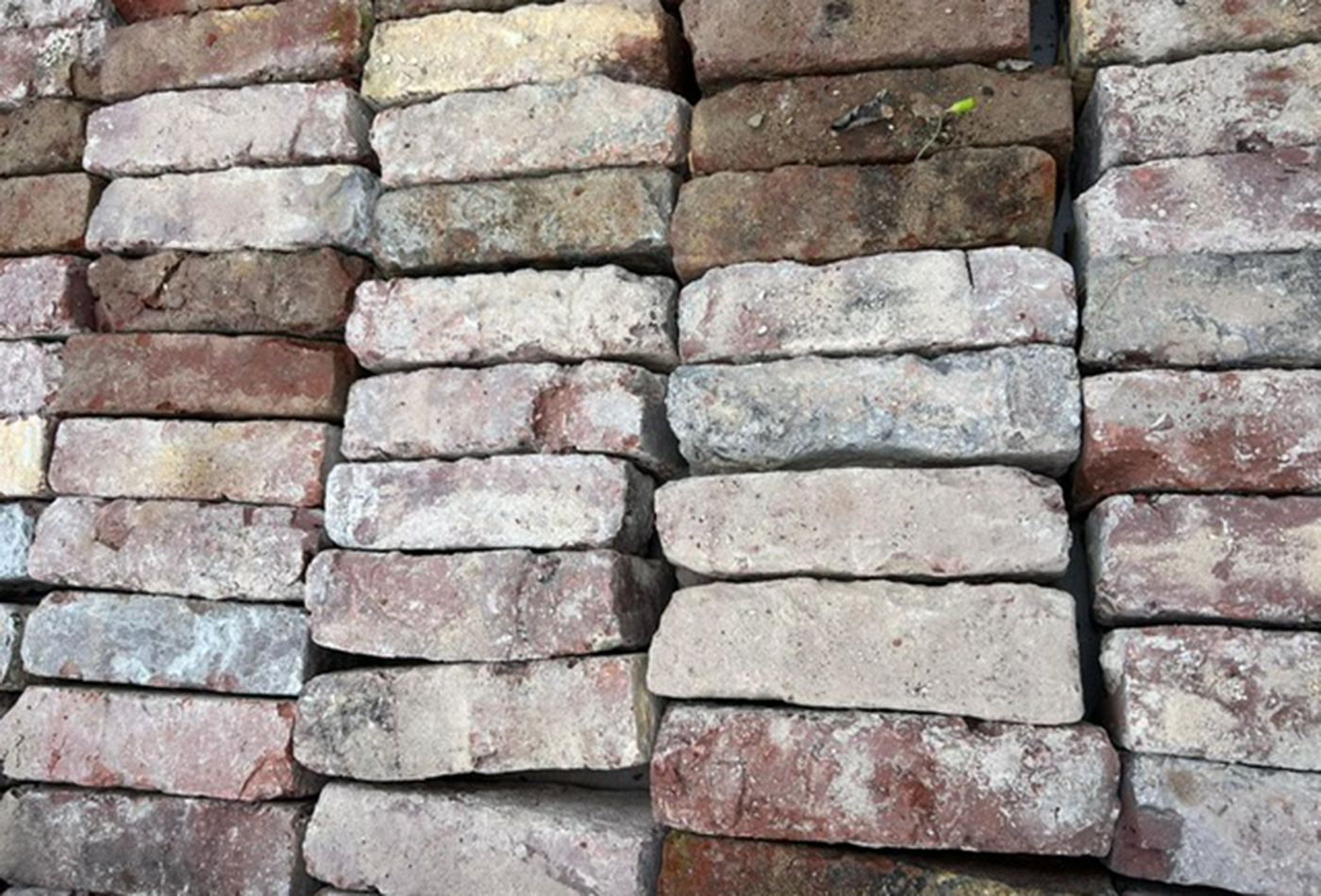Industrial Clinkers and Hand-Fired Bricks from Germany
The first colliery brickworks in Germany emerged as auxiliary operations of coal mines, particularly in the Ruhr region. As demand for building materials grew rapidly during industrialization, both hard coal mines and lignite open-pit mines established their own brickworks to meet the needs of expanding cities and industries.
With the onset of industrialization in the late 18th century, brick production became increasingly mechanized. Early machines automated the shaping and trimming of bricks (dry-press method), but it was the extrusion process — where clay is pressed through a die and cut to size — that eventually became the standard.
At the same time, the invention of the Hoffmann ring kiln revolutionized brick manufacturing. This continuous firing system enabled a consistent, high-quality burn and allowed for non-stop production, leading to unprecedented output. The varying temperatures within the kiln chamber created uneven firing — a "flaw" at the time, but one that today gives historic clinkers their distinctive, irreplaceable color variations and character.
Our bricks come from this very era — a time when precision, durability, and craftsmanship defined German industry. They are a testament to the fact that "Made in Germany" has long stood for quality and reliability.
Selections available:
Ruhrgebiet Selection
The bricks sourced from the Ruhr region feature a warm, Mediterranean-style, light red hue — rich in character and timeless in appeal.
Approx. 50 bricks are needed per square meter.
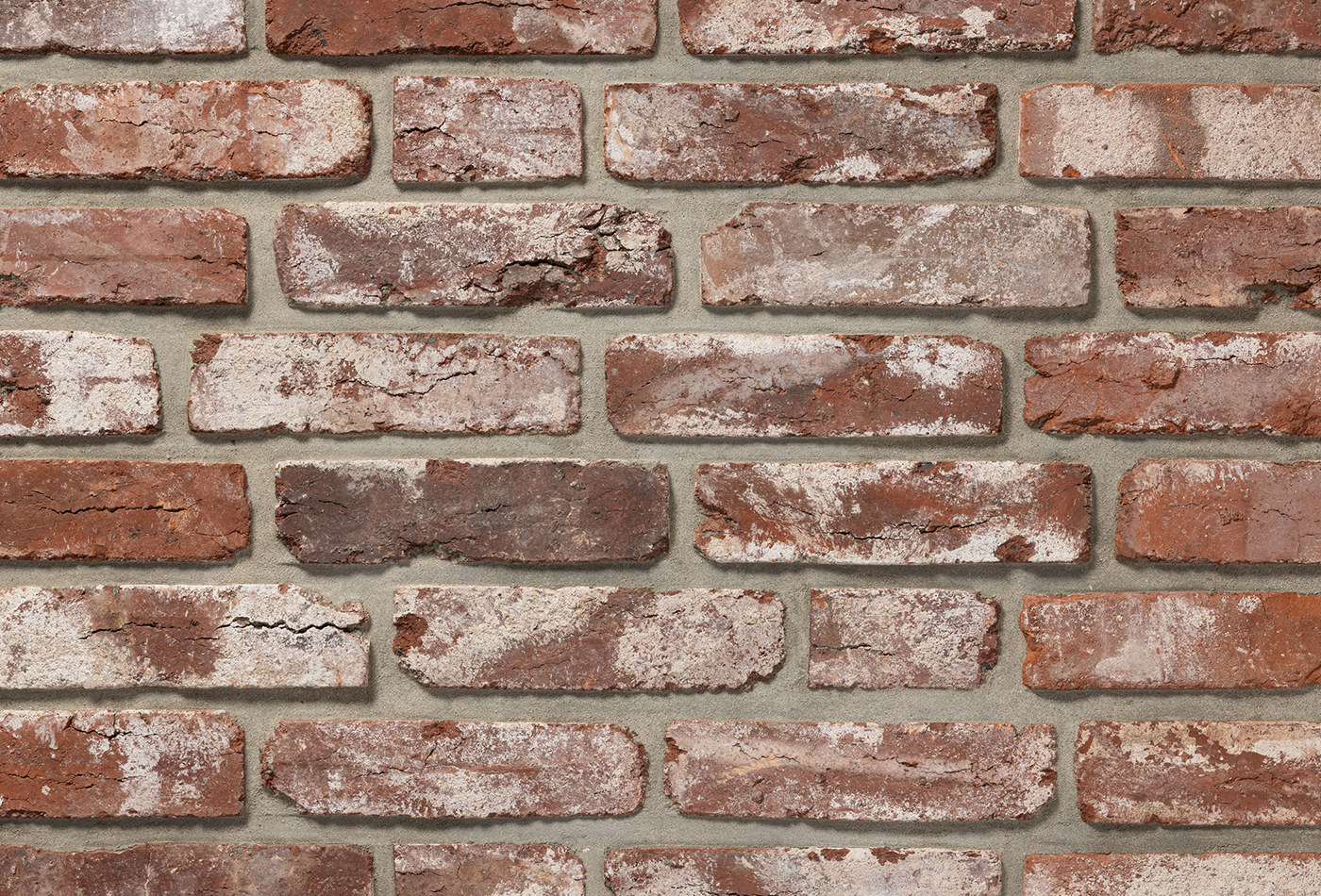
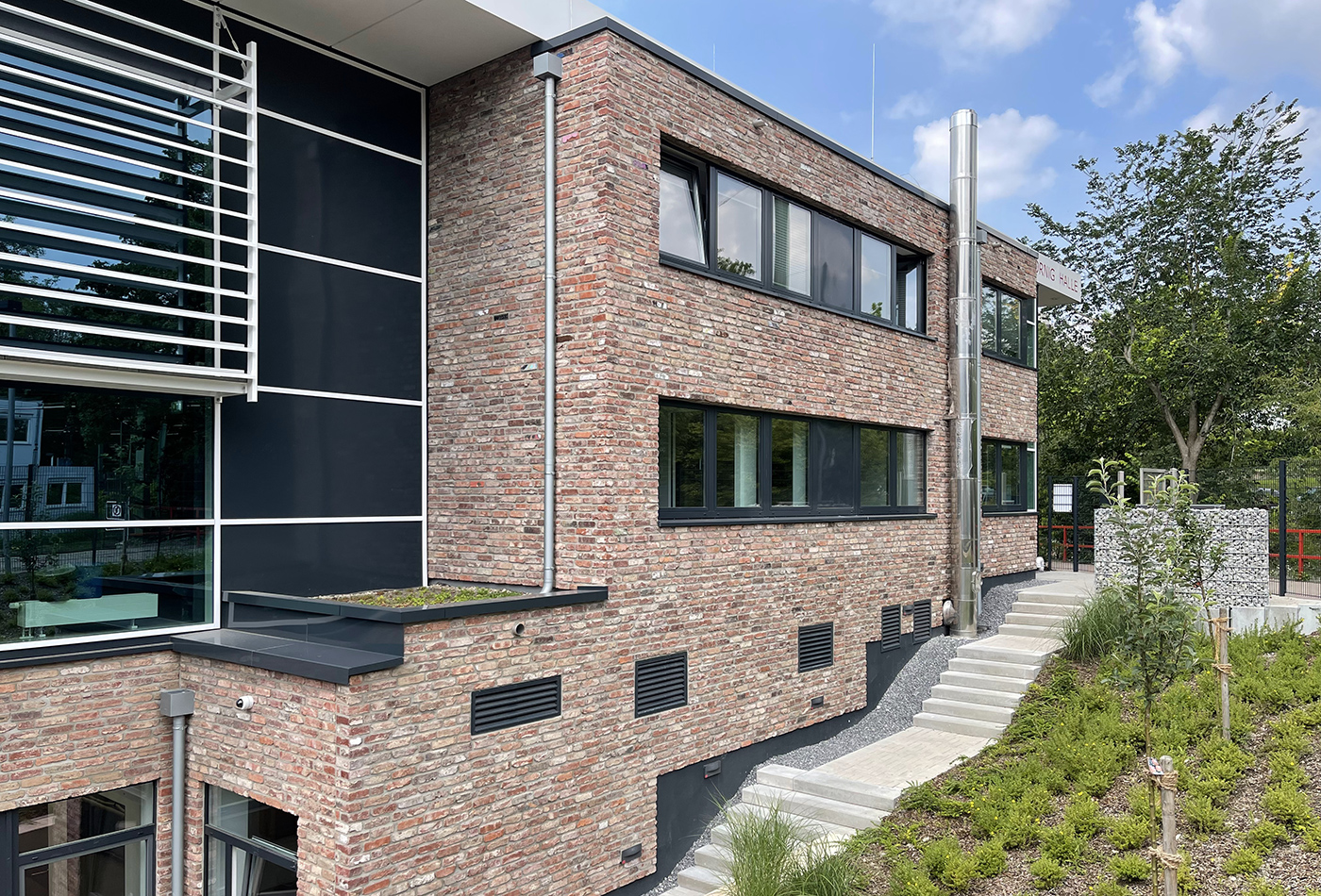
Rhineland Selection
Bricks sourced from the Rhineland region feature a distinctly darker red tone, ranging from deep fired hues to vitrified (melted) surfaces. This gives the bricks a slightly cooler, more robust character while maintaining their historic charm.
Approx. 50 bricks are needed per square meter.
Nominal dimensions: 250 x 120 x 65 mm
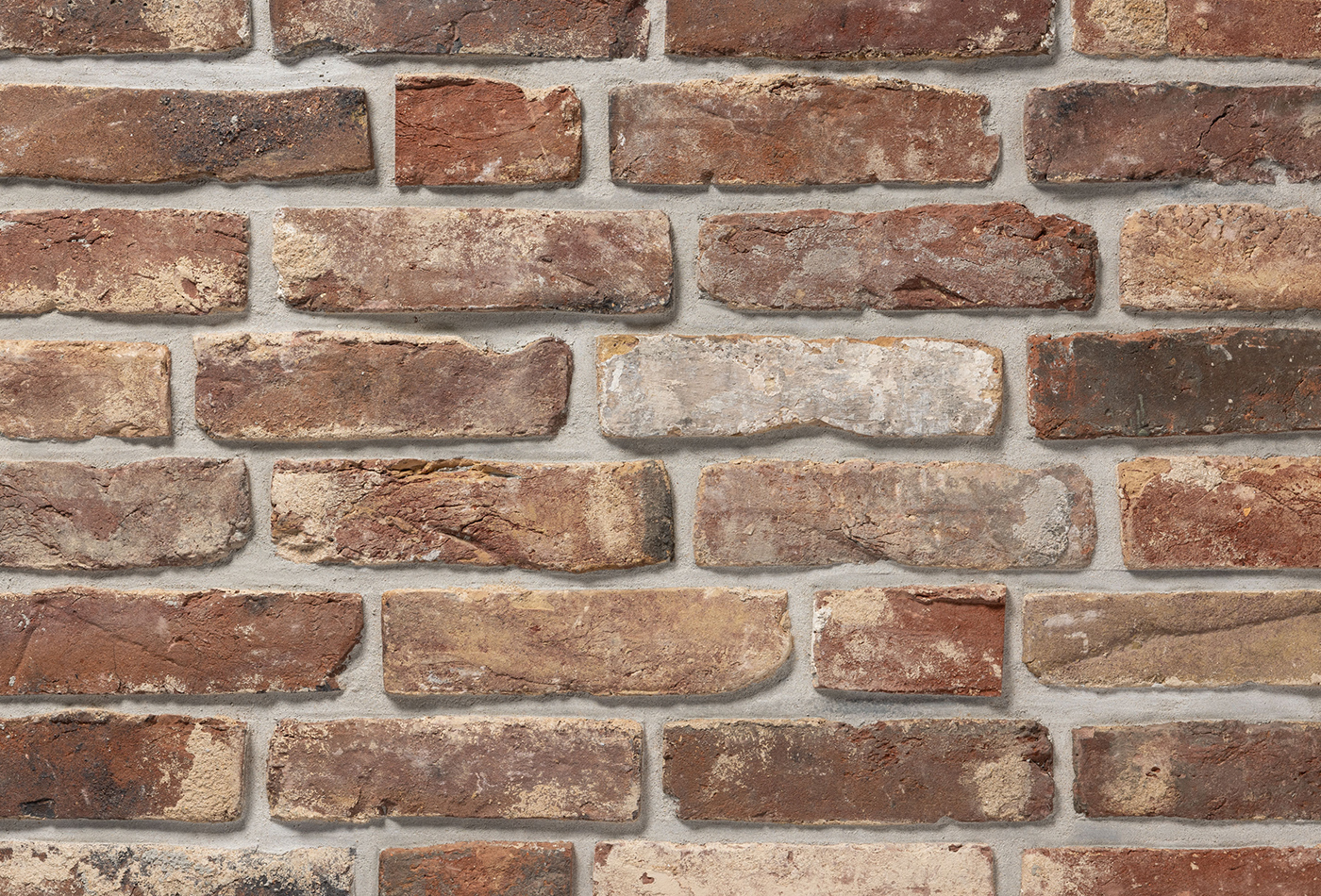
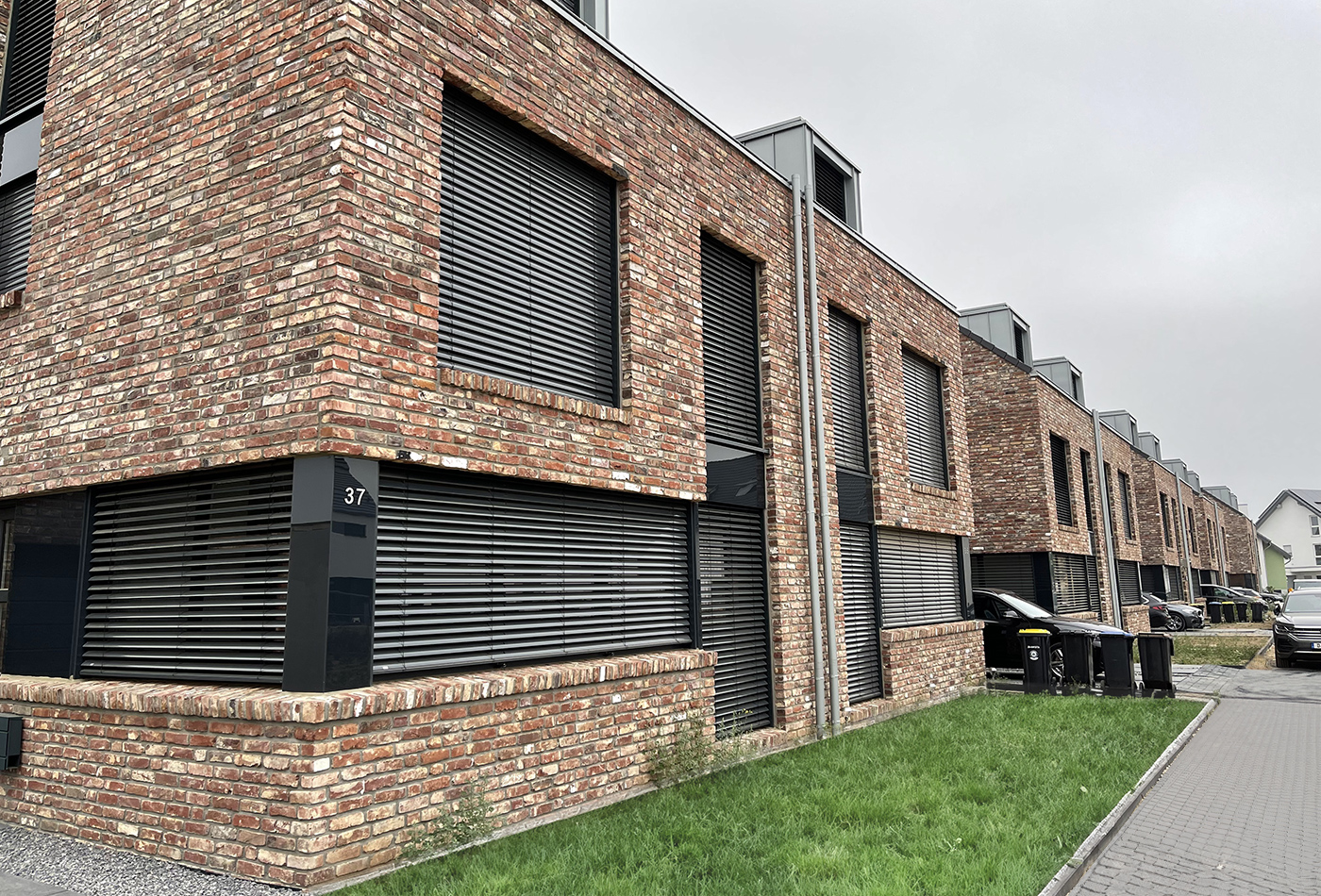
Elbe Region Selection
Bricks sourced from northern Germany feature a light red to warm orange hue, characteristic of the region’s clay composition. Their bright, inviting tone adds a luminous quality to façades and interior walls.
Approx. 50 bricks are needed per square meter.
Nominal dimensions: 250 x 120 x 65 mm
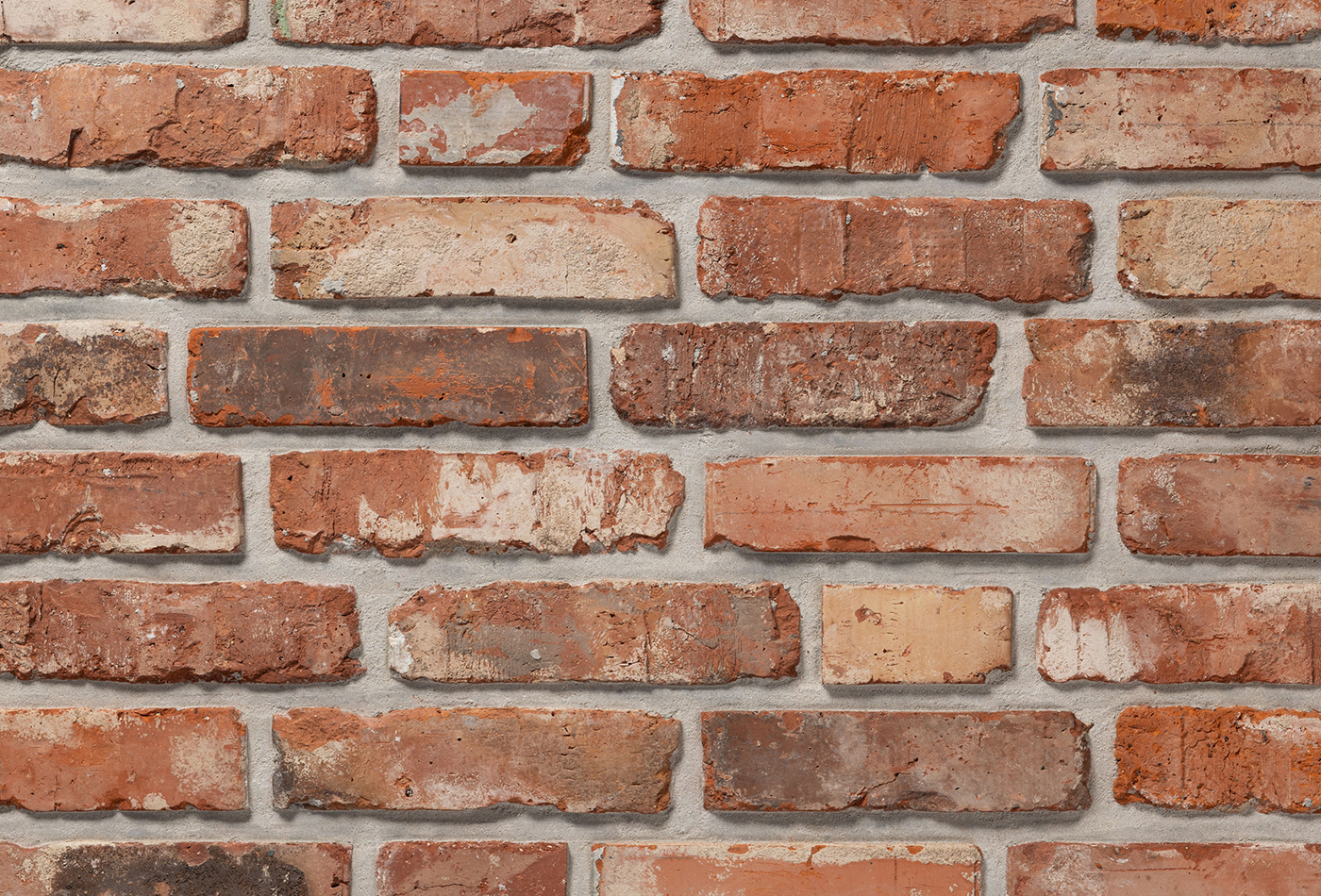
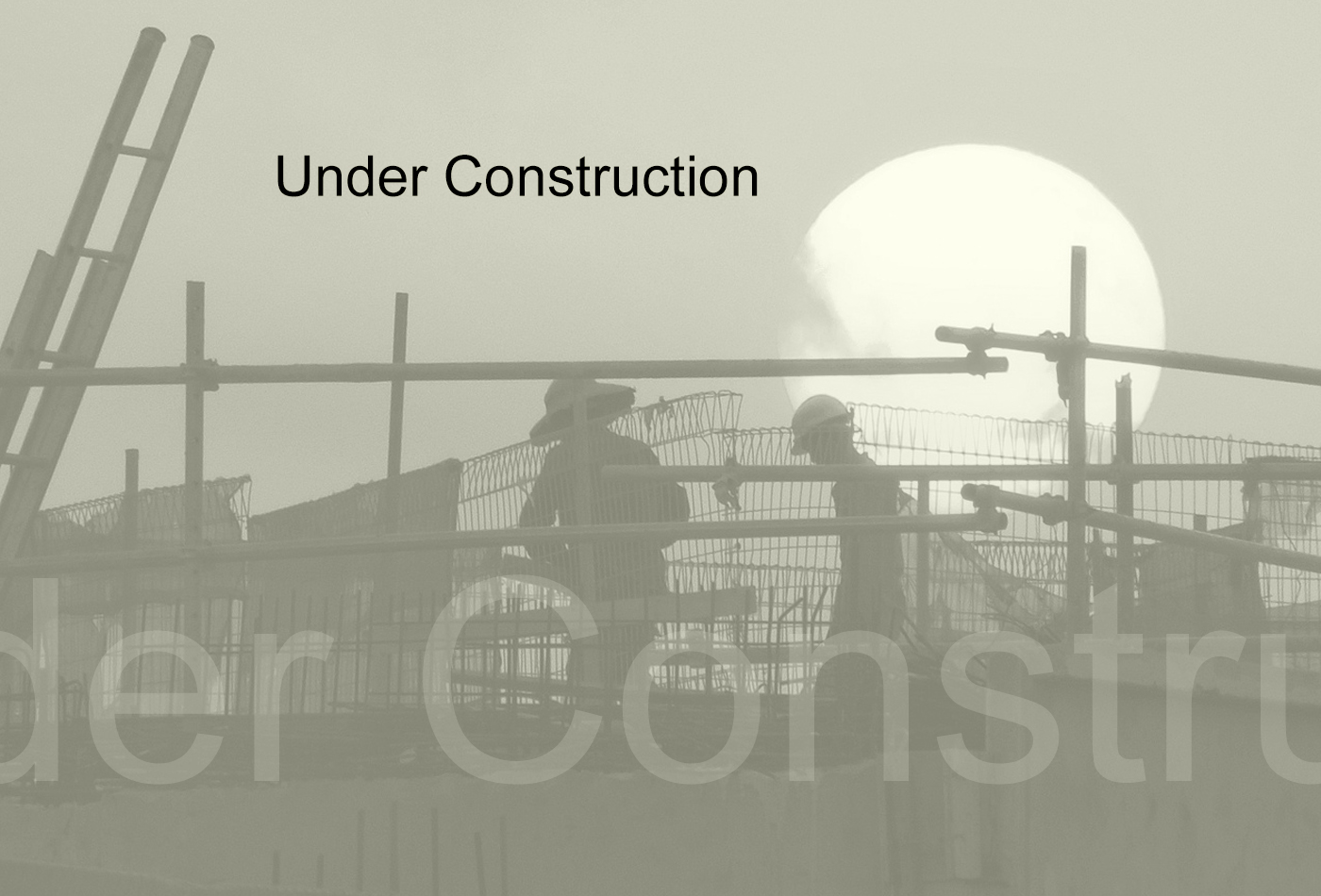
Rhine-Main Region Selection
The bricks from the Rhine-Main area develop a pale yellow to warm ochre coloration during firing, resulting in a soft, earthy color palette. This distinctive hue adds a calm and natural elegance to both interior and exterior surfaces.
Approx. 50 bricks are needed per square meter.
Nominal dimensions: 250 x 120 x 65 mm
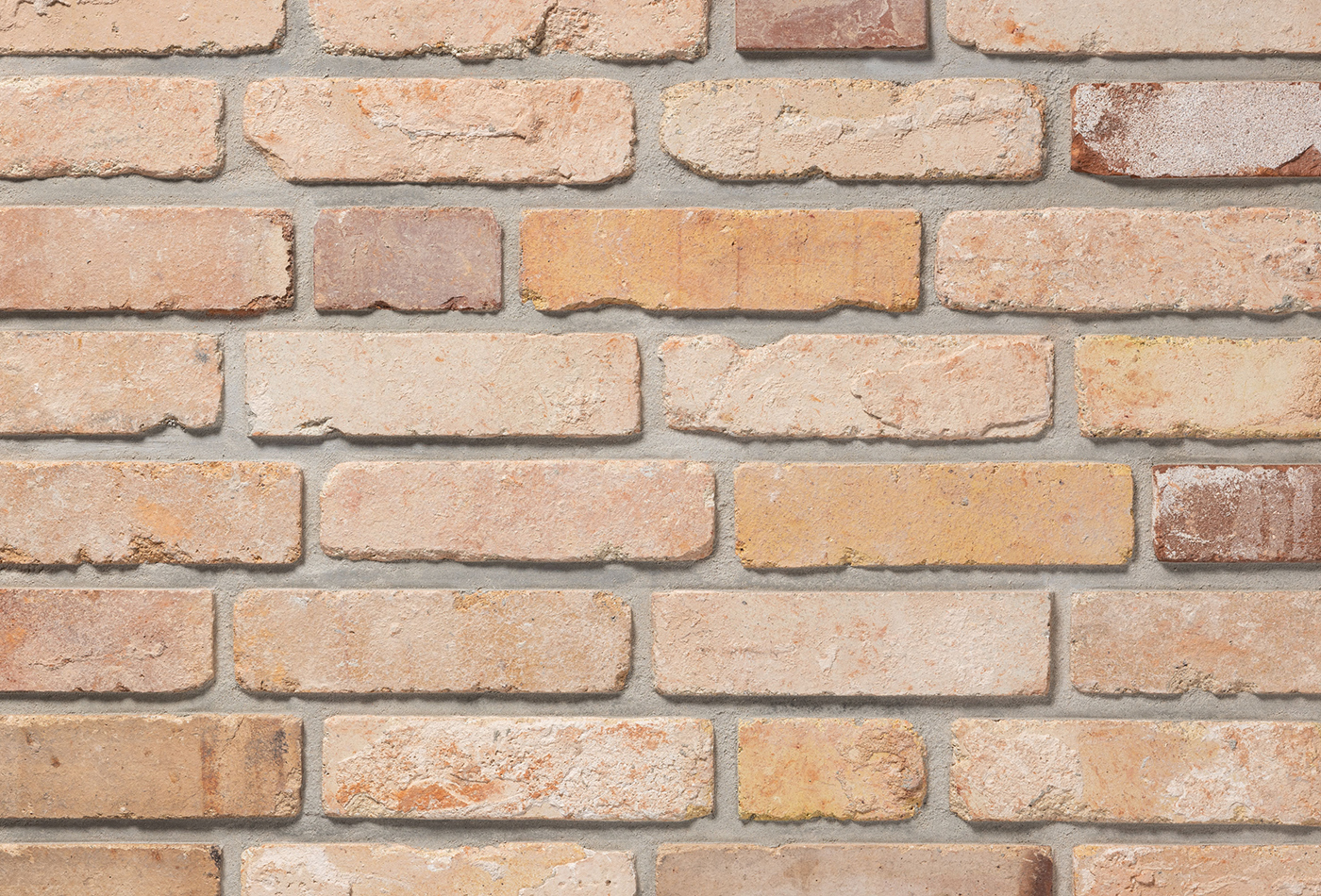

Hand-Fired Bricks from Germany
The raw materials for hand-fired bricks were traditionally gathered directly in the field. Skilled brickmakers manually stamped the clay into wooden molds, carefully removing any impurities by hand. To prevent the clay from sticking, the molds were dipped in water before being emptied.
The resulting clay blocks — known as "Lehmkuchen" — were laid out on sandy ground to dry naturally in the sun. Straw mats protected them from drying too quickly, ensuring even curing.
After pre-drying, the unfired bricks were stacked into large clamp kilns and fired with coal. Due to varying heat zones within the kiln, temperature distribution was uneven and uncontrolled. This irregular firing process is precisely what gives hand-fired bricks their distinctive character and unique color variations.
The bricks closest to the fire were intensely fired — sometimes vitrified or partially melted — while those at the edges remained softer and less uniform. This contrast creates a rich, organic appearance that cannot be replicated by modern industrial methods.
Because each brick was made entirely by hand, their dimensions are less uniform compared to machine-made extruded or dry-pressed clinkers. As a result, hand-fired bricks have a lower bulk density and higher water absorption — characteristics that reflect their traditional craftsmanship and natural production process.
